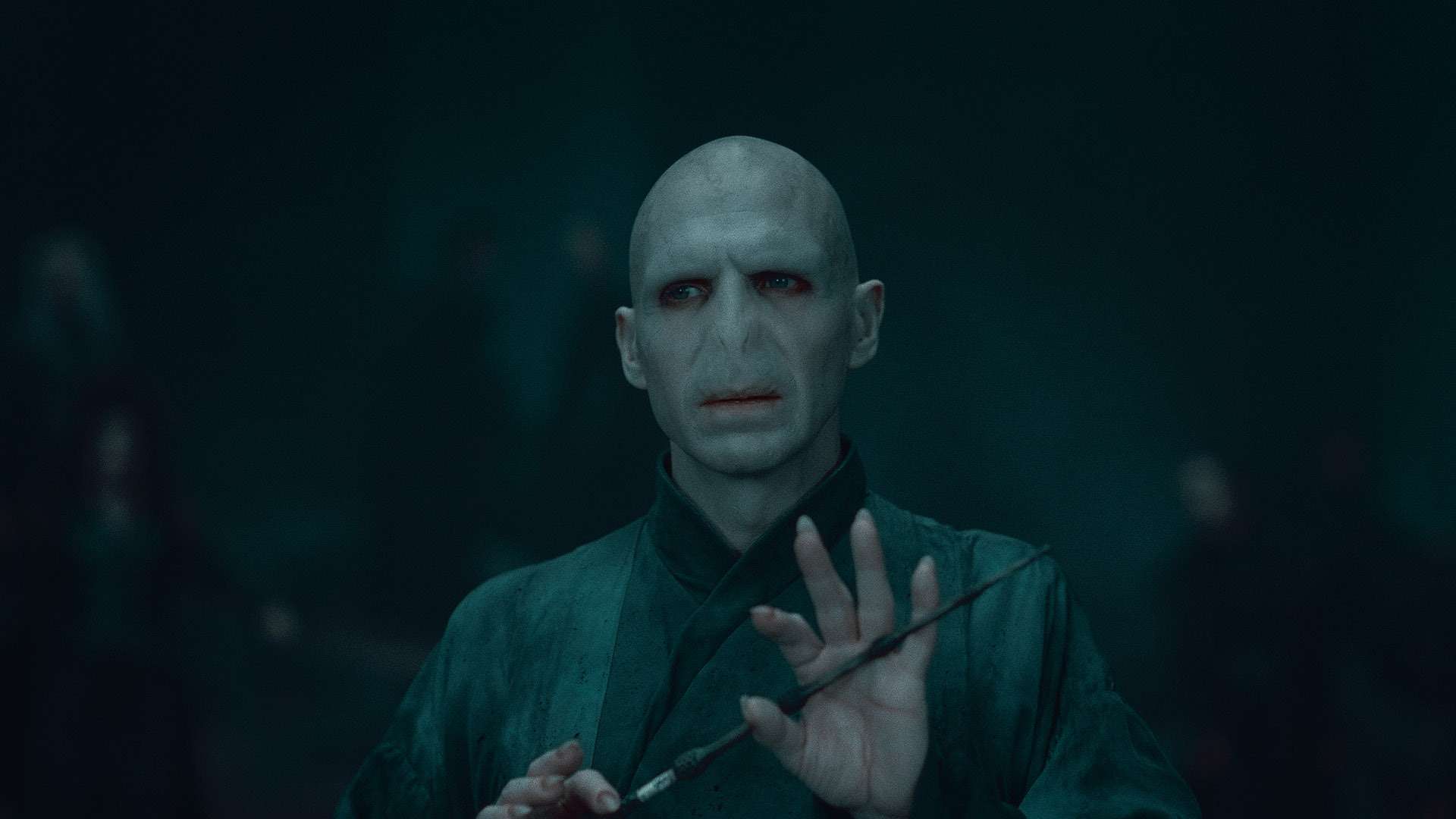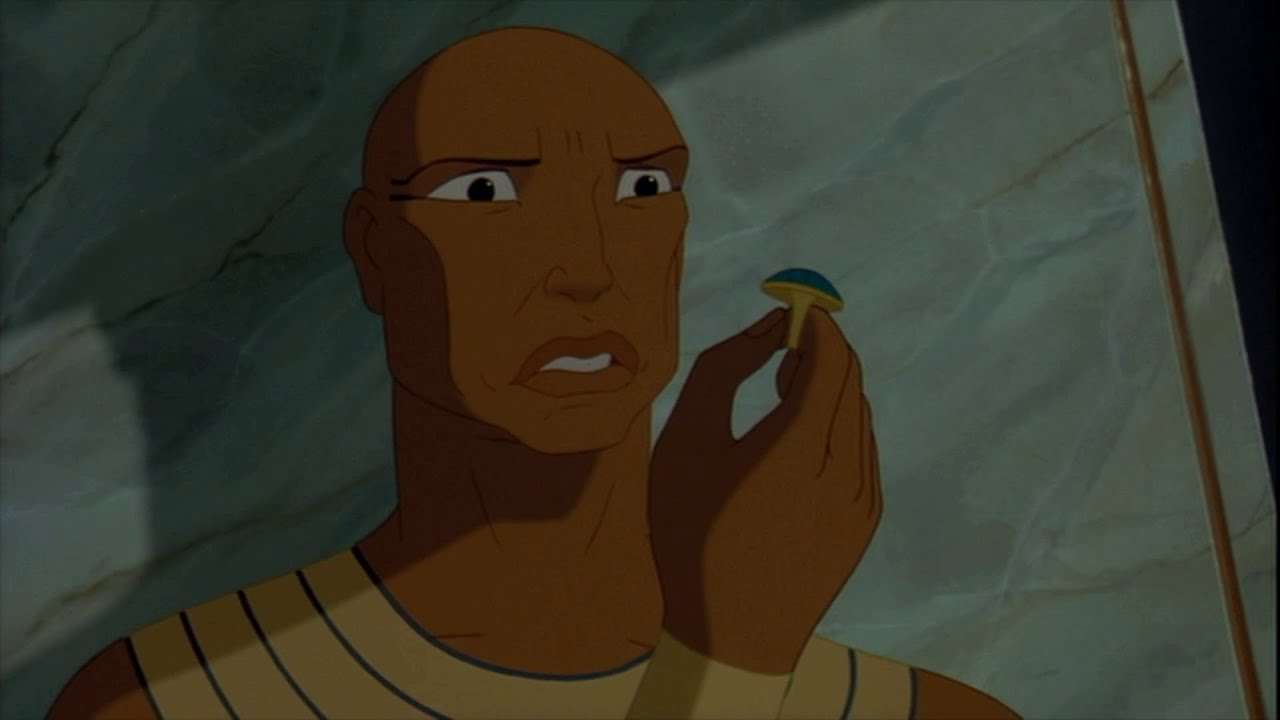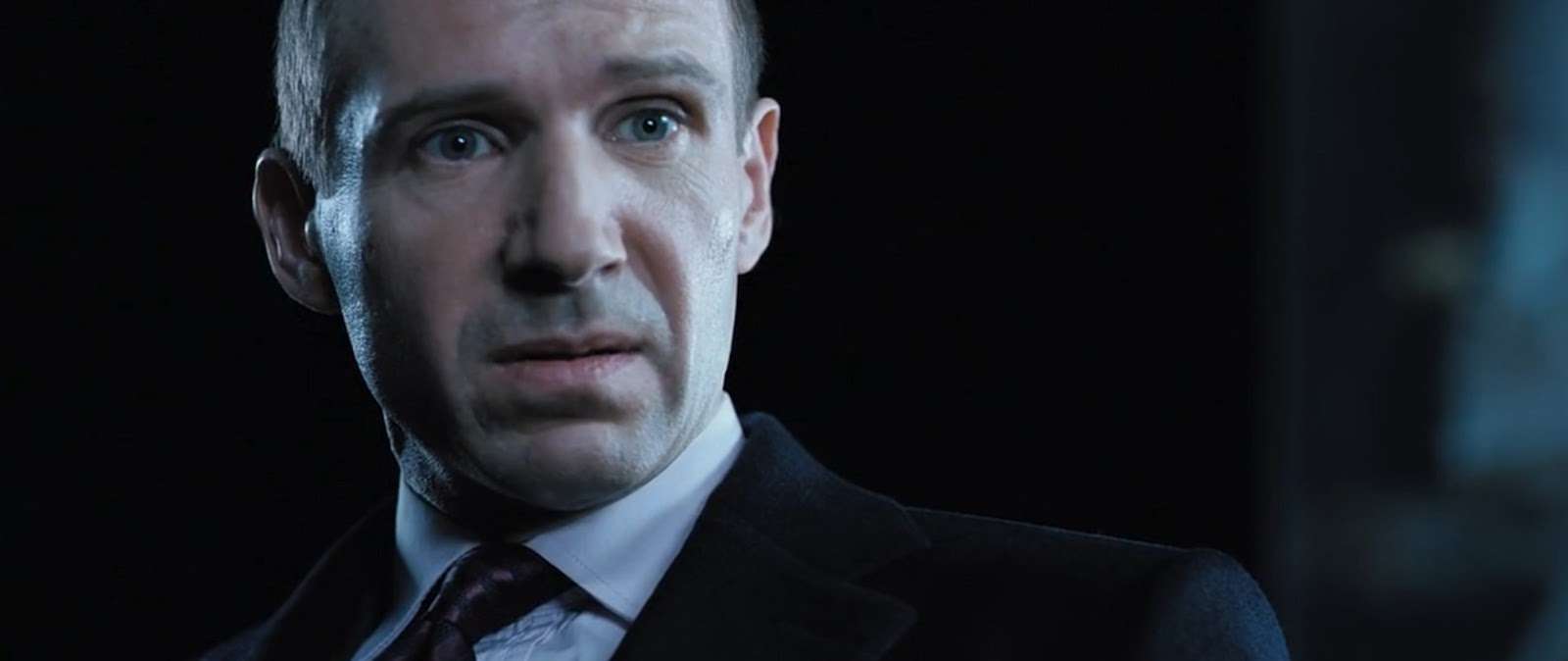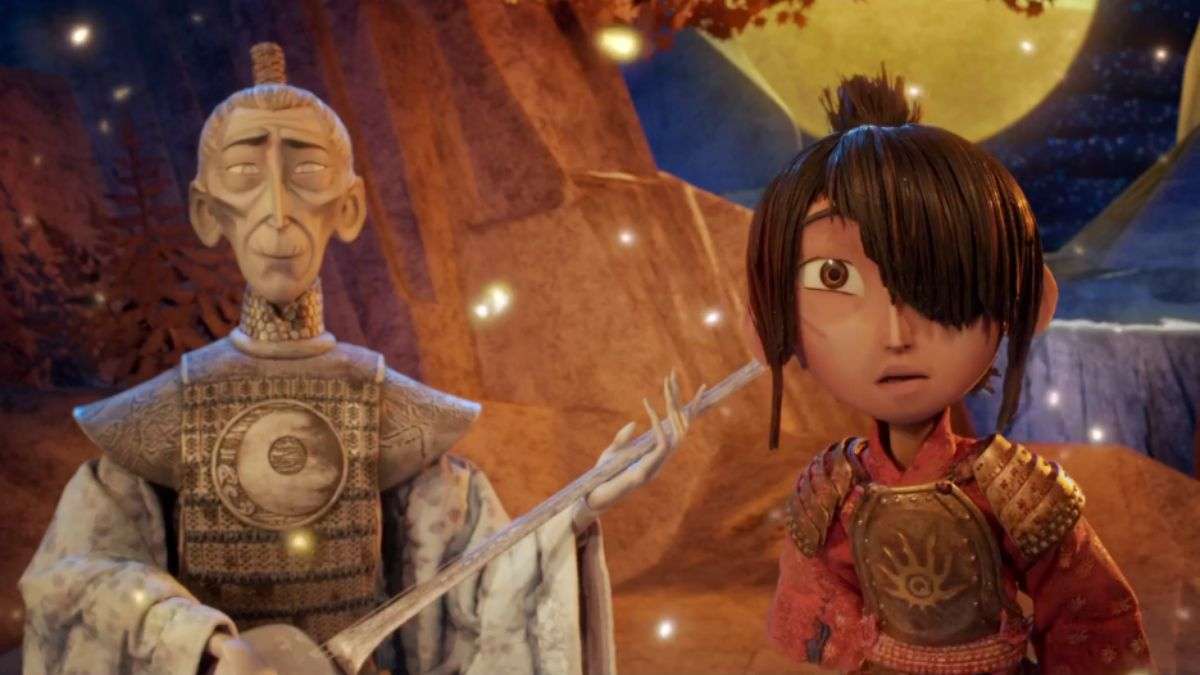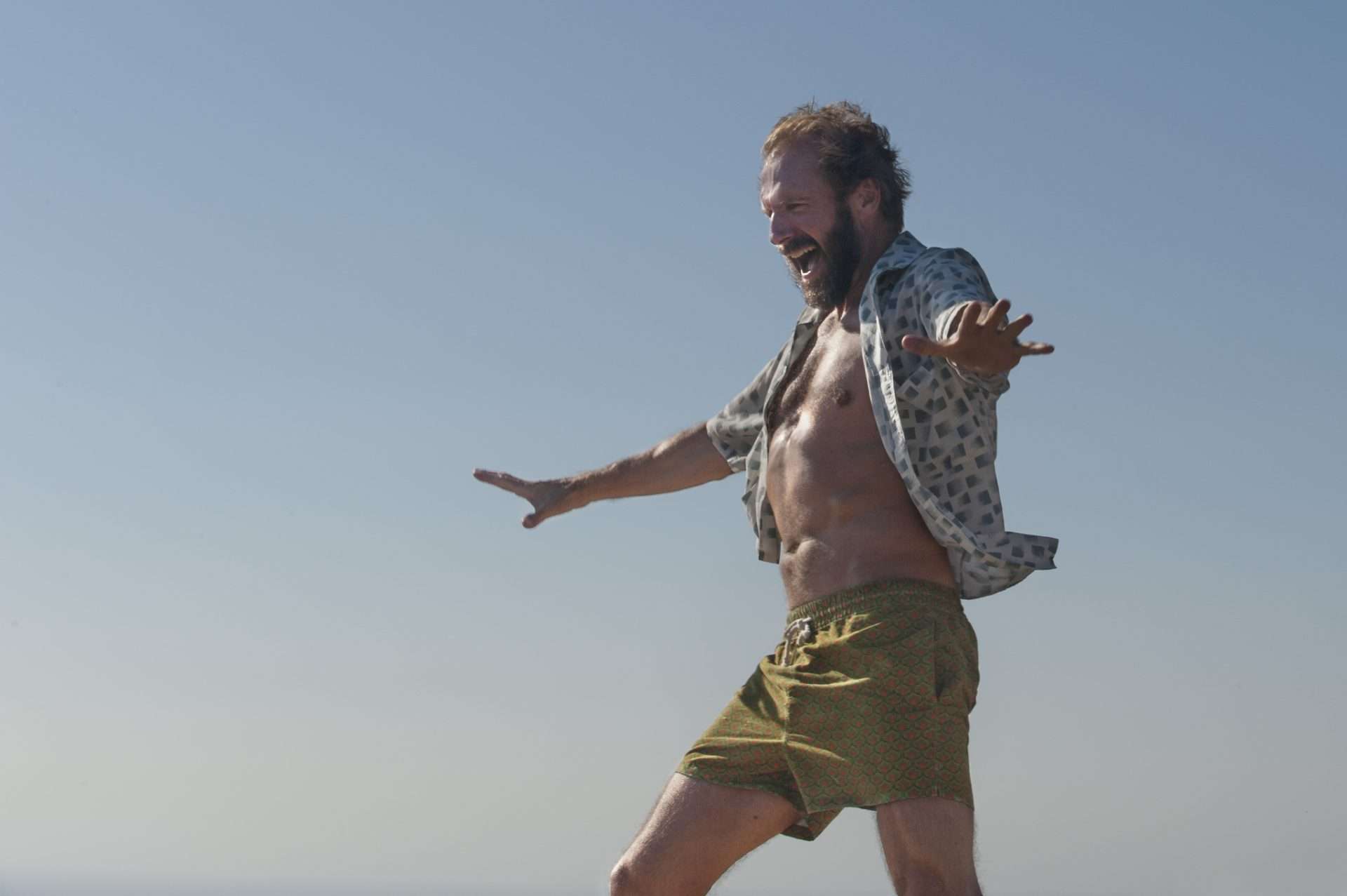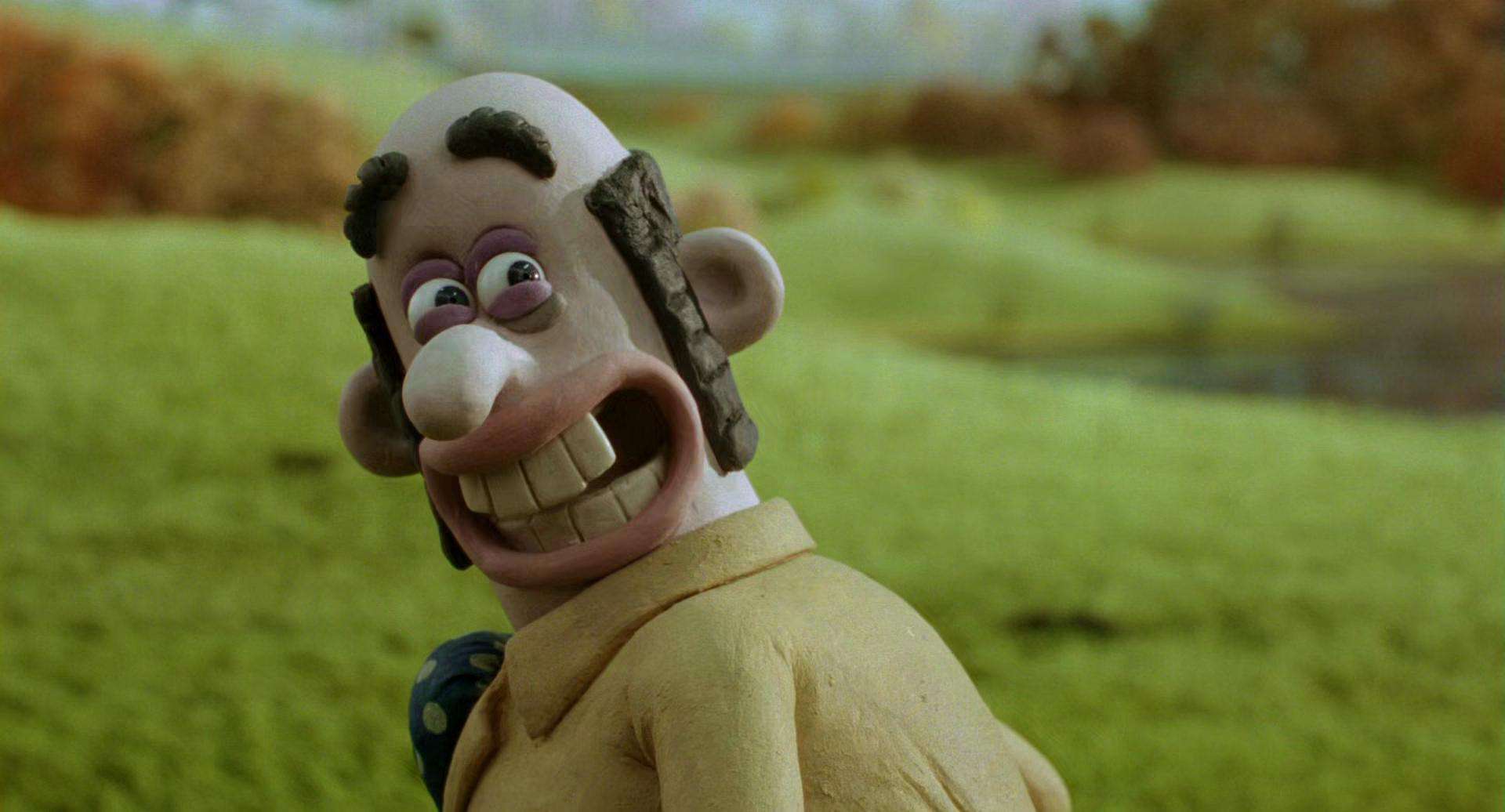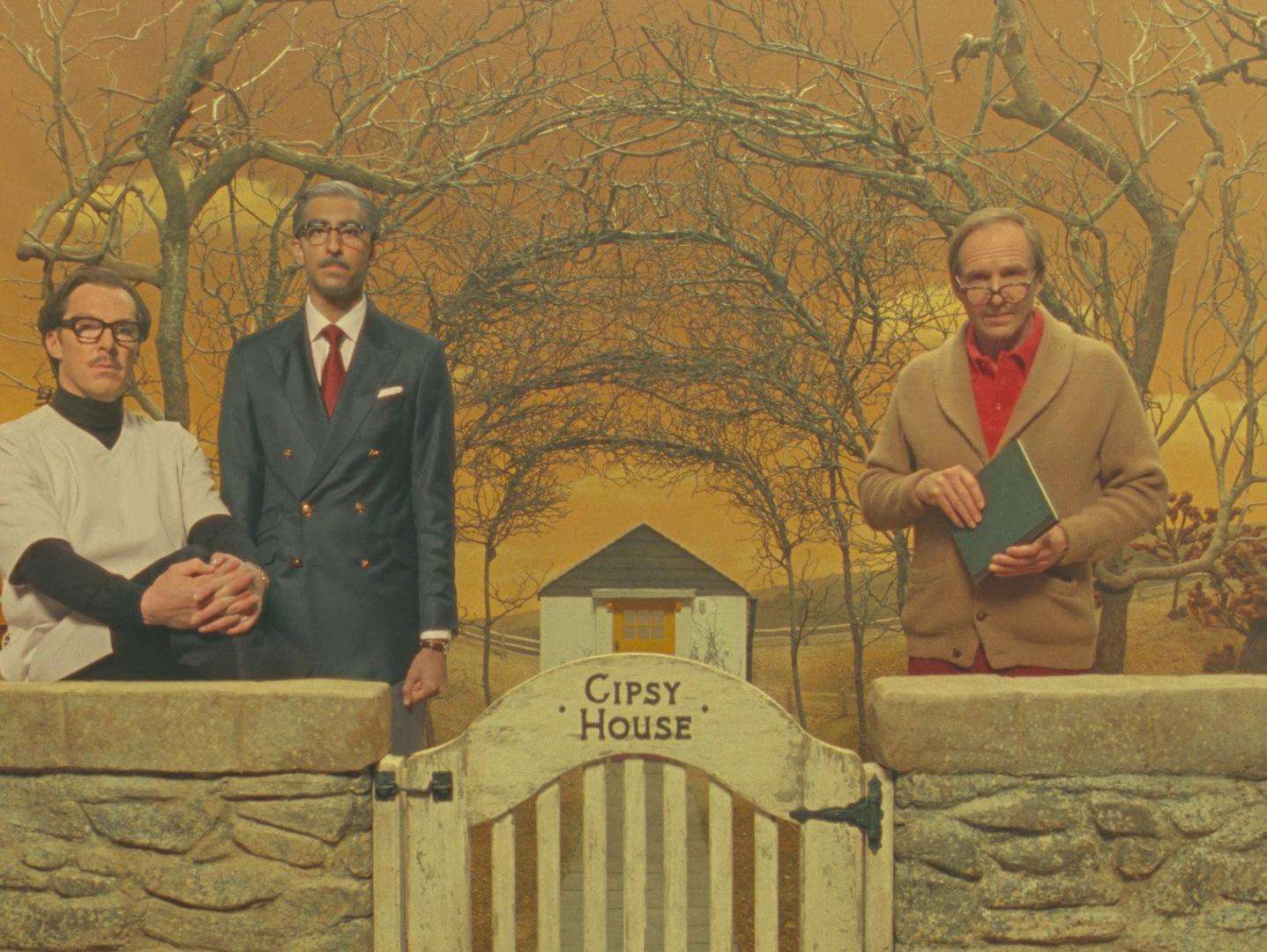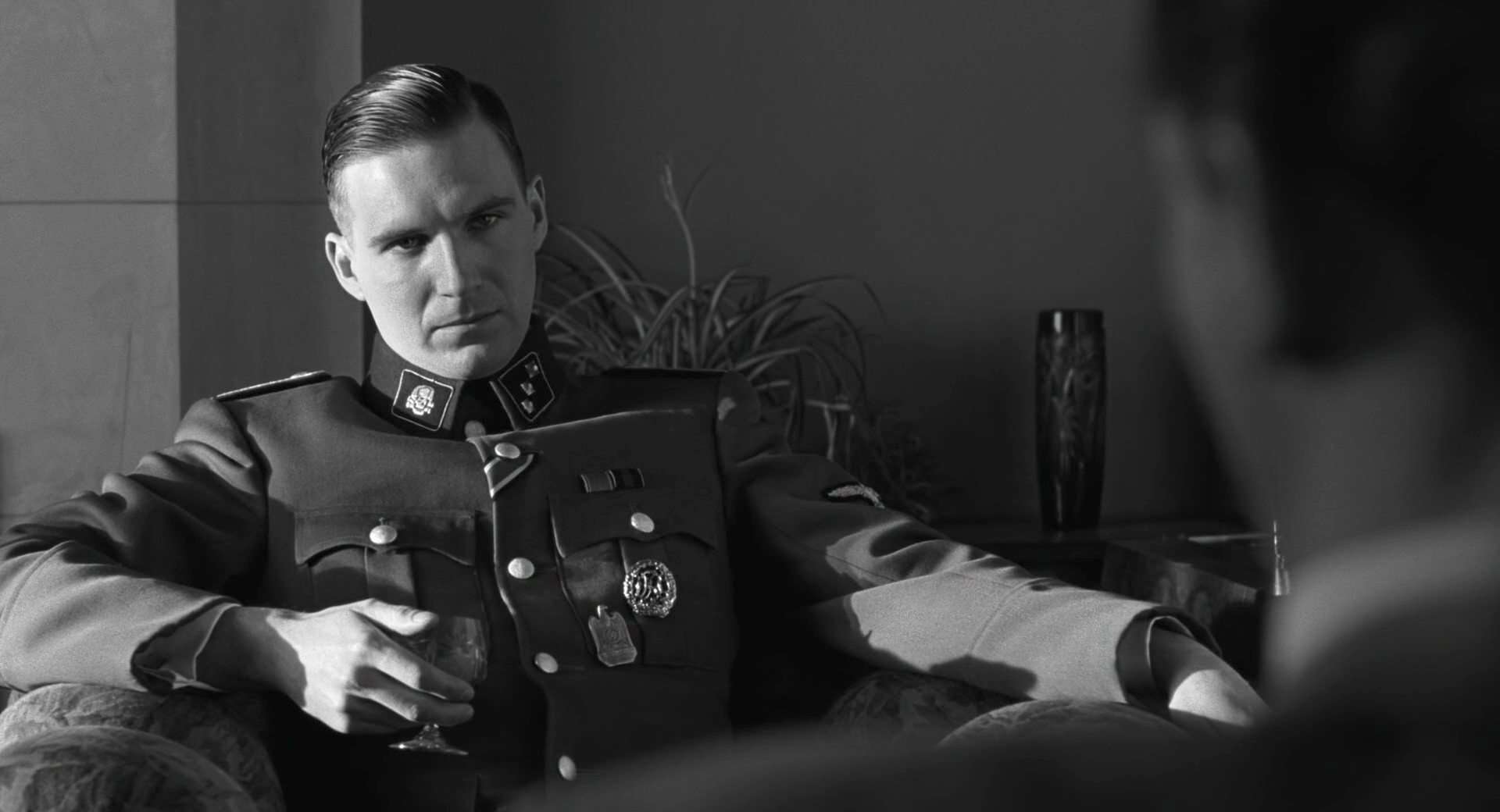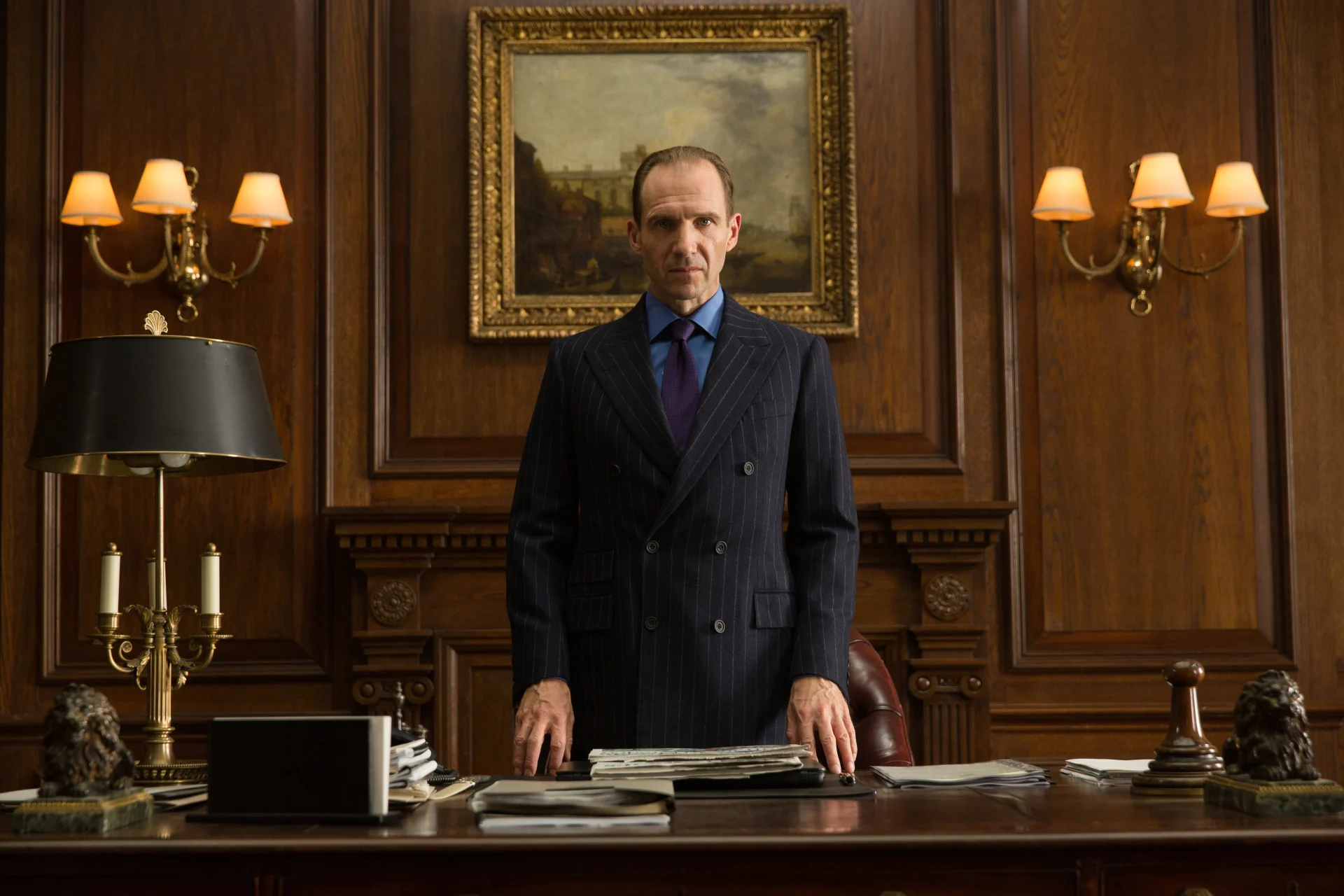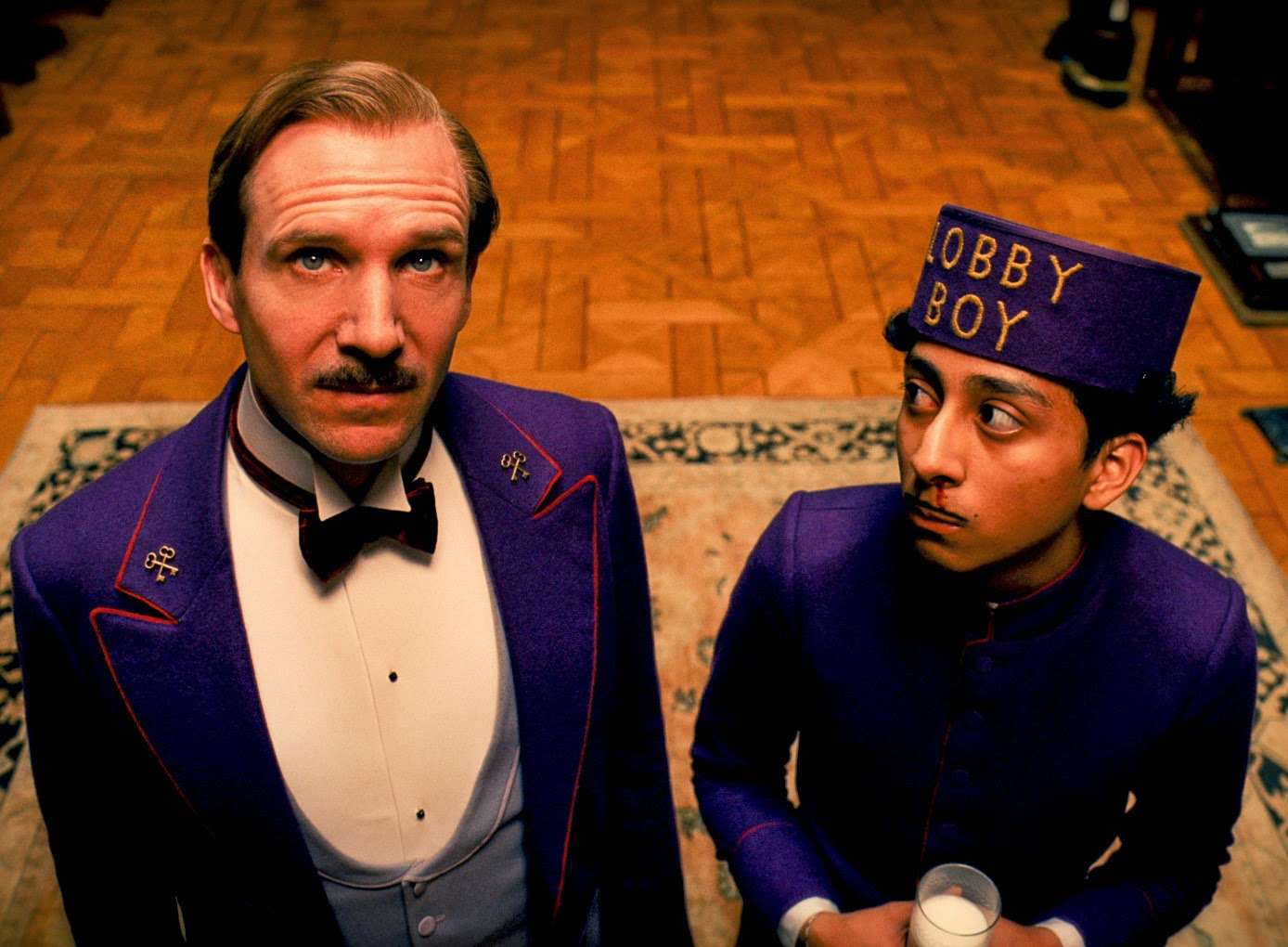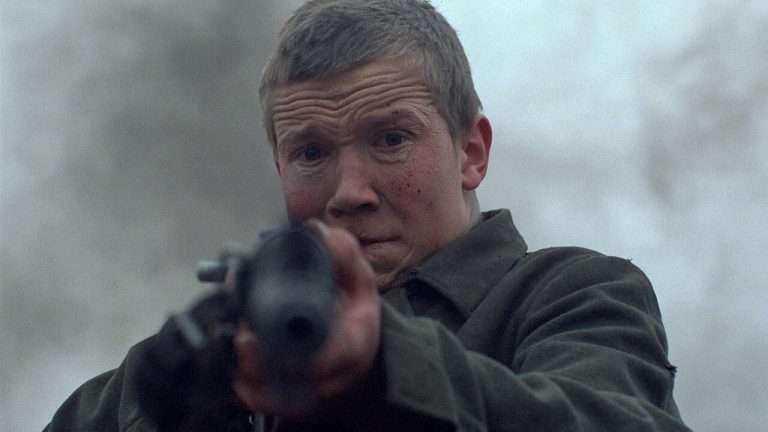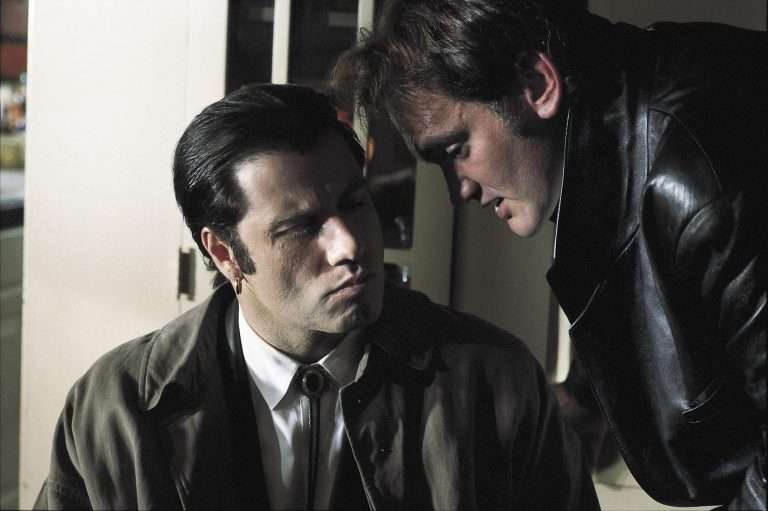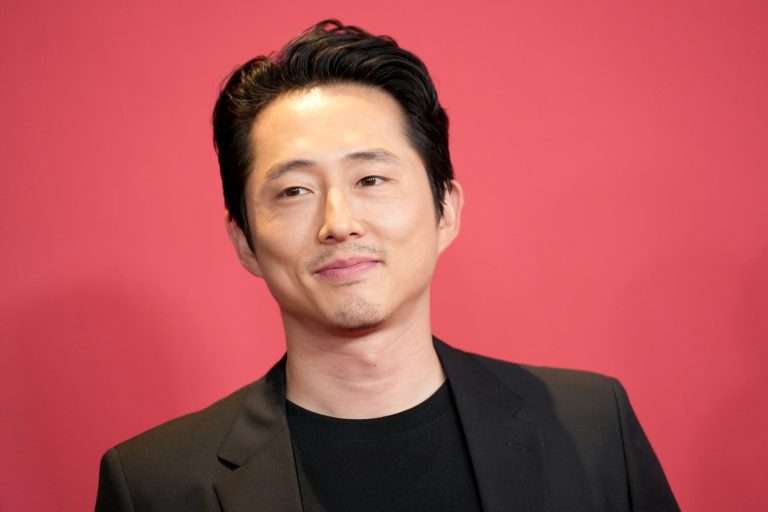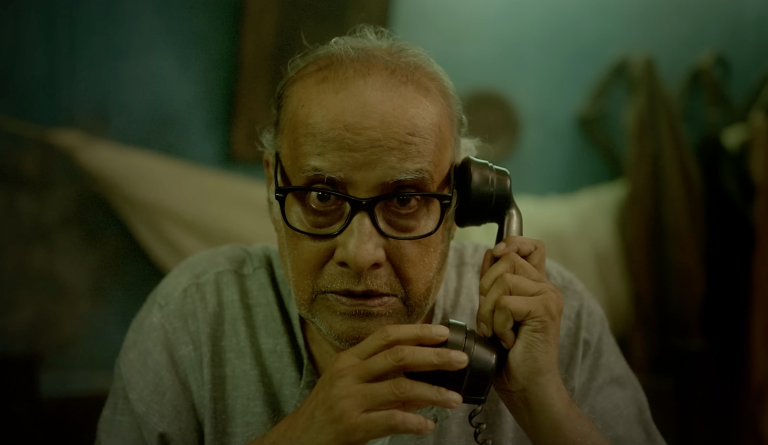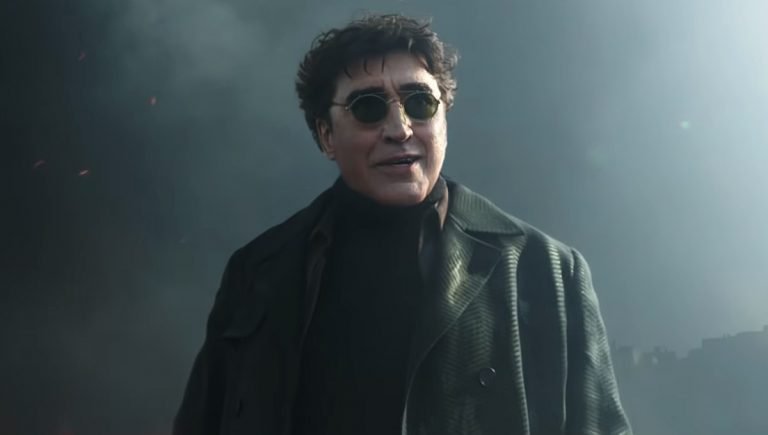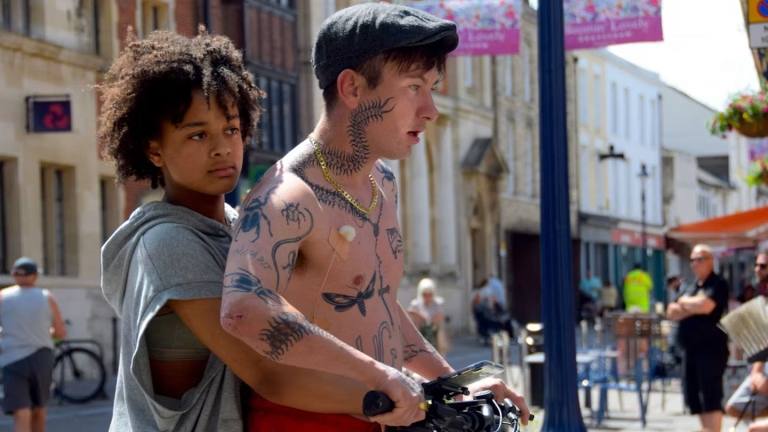With both “Conclave” to satisfy the middle-aged dads of the world yearning for a classic mid-scale thriller, and “The Return” to satisfy the middle-aged moms obsessed with history and buff Brits, it’s arguably never been a better time to have stock invested in Ralph Fiennes. A thespian of both the stage and screen, Fiennes has become a steady staple of the arts, fluent in both Shakespeare and splashy genre fare. So, too, has Fiennes become a staple of our lives; it almost feels like a rite of passage to learn that the man’s name is actually pronounced “Rafe.”
On the screen, Fiennes has excelled not only in his own performances—never delivering anything less than dignified, even in its delinquency—but in his choice of roles as well. Boasting an eclectic filmography that spans the entire gamut of genre and prestige works alike, Fiennes has more than earned his position as a regular at our dinner table, like the one fascinating uncle in the corner who comforts you one day and terrifies you the next. Here is a look at some of his best work to date.
Special Mentions:
To quickly rattle off a few honorable mentions, “The LEGO Batman Movie,” deserves a shout-out for Fiennes’s worthy turn as the immortal Alfred Pennyworth to bring that trademarked poise to a relentlessly silly affair, as does “The Hurt Locker,” a very different breed of film that might have come close to this list had Fiennes’s contribution been more than a glorified cameo. “The Menu,” for a recent example, takes its class commentary (not an uncommon topic in cinema in 2022) and foregoes subtlety for just about the most on-the-nose, but no less enjoyable, “eat the rich” message of them all. Oh, and for the record, the Best Picture-winning “The English Patient” will not be appearing on this list, on account of it sucking. Now, for the list proper:
10. Harry Potter and the Deathly Hallows, Part 2 (2011)
“Harry Potter” nerds rejoice, this is the only bone you’re getting thrown away today. The seminal series for geeks who aren’t ready to admit they’re geeks (no judgment, we’ve all been there; some of us are still there), the “Harry Potter” franchise was a staple for many children and families across the 2000s, growing up right alongside them. “Deathly Hallows, Part 2,” as the culminating feature, offered a climax of monumental proportions, benefitting from all the setup in “Part 1” to deliver on the resolutions fans had been waiting for since the boy walked out from under the stairs.
Fiennes, for his part, cemented his role in the latter half of this series with his turn as the ultimate wizard Hitler, Voldemort, scarring just as many children with his piercing stare as he did with his character’s iconic lack of a nose. (A famous anecdote the actor gives on The Graham Norton Show recalls him making a child on set burst into tears upon seeing him in full makeup.)
In a series that made a regular habit out of casting every British thespian with a month off between Shakespeare recitals, Fiennes stood out—partly out of necessity from being the series villain—to deliver a slimy and effortless turn as one of the most transparently (just look at that translucent reptile skin!) evil beings to ever pick up a wand. “Deathly Hallows, Part 2” is a culmination of the “Harry Potter” franchise’s entire legacy (pre-J.K. Rowling’s ongoing political meltdowns), and Fiennes, for his part, was instrumental in that legacy.
9. The Prince of Egypt (1998)
Widely viewed as one of the most criminally under-viewed features of the early DreamWorks days, “The Prince of Egypt” stands as one of the last bastions of the days of hand-drawn animation, here expanded to (literal) biblical proportions. A retelling of the story of Moses, the film rests its emotional core largely upon the strained relationship between its prophet (Val Kilmer) and his adopted brother, Pharaoh Rameses, voiced by Fiennes. Not uncommon for Fiennes to play a villain (as will be noted through the vast majority of this list), “The Prince of Egypt” affords him an opportunity to explore a more inward understanding of the tragedy at the heart of his heartlessness, recounting a tale of lifelong distance between two boys who grew up in the same palace.
That Fiennes is able to communicate Rameses’s inner turmoil with nothing more than his voice speaks to the actor’s ability to see the potential in every villain, not just for scenery-chewing, but for genuine understanding. In this case, “The Prince of Egypt” forces Fiennes to mine that pathos with only the tones of his voice for a devastating tale etched in stone tablets upon the peaks of… K2? (My bible studies are rusty, I’m afraid.) In any event, Fiennes opens the role up to a far more layered comprehension than most generational narratives are able to convey.
8. In Bruges (2008)
Were it not for some of its humor undeniably aging like warm milk, “In Bruges” would probably stand as an unimpeachable comedy of distinctly European standing. Martin McDonagh’s first feature film employs Fiennes as one of the three primary players, but his own role—as, you guessed it, the primary antagonist—is much more of a tasty morsel than a full-on main course. Exploring the lengths of his capacity for profanity, it’s an absolute joy to hear Fiennes spewing out expletive after expletive with a thick cockney(?) accent, countered brilliantly by Colin Farrell’s and Brendan Gleeson’s dry Irish lilts.
McDonagh’s comedy, dated as it may be in some instances here, is primarily reliant upon the dynamics between the grown-up children that populate his work, and “In Bruges” brings that juvenile energy to the forefront, in its most appropriately infantile form. Fiennes here turns his evil gaze to less sinister uses, becoming quite terrifying but also undeniably hilarious in the same stare; nothing will ever beat his twitchy, bug-eyed glare across the table as Gleeson just casually insults Fiennes and his entire family, invoking, first and foremost, the call for a retraction; “Insulted my fucking kids? That’s going overboard, mate!”
7. Kubo and the Two Strings (2016)
Switching gears a little bit, “Kubo and the Two Strings” takes us back to the realm of animation, but always sticking to the villain’s role for Fiennes. This time, his role comes in much later, his character looming over the titular boy’s journey as an unseen force until his ghostly figure emerges to unleash hell. Not without its own controversies, “Kubo and the Two Strings” was primarily critiqued for its appropriation of Japanese culture without the forethought to cast Japanese actors in its voice roles; a perfectly valid criticism, the film nonetheless tries its best to maintain a respectful reverent attitude the entire time, and Fiennes as Kubo’s godly grandfather makes the most out of little screen time.
Across the rest of the film, the star is undoubtedly the animation, as Travis Knight takes his dad’s Nike money and gives LAIKA the free rein to play around and reach new peaks of what stop-motion animation can achieve; for their efforts, the team earned an Oscar nomination for visual effects, only the second such nomination for an animated film after “The Nightmare Before Christmas.” A visual treat in every sense, Fiennes nonetheless reminds us constantly that what we hear is just as sinister as what we see.
6. A Bigger Splash (2015)
Fiennes has a habit of playing villains, but less discussed (while often intersecting in that realm) is his capacity to play an absolute nutter. “A Bigger Splash” gives Fiennes just that opportunity, as director Luca Guadagino affords his actor the chance to align himself with the indescribable air of horny vigor at the heart of the film. With the Italian oceanside as a stunning vista, Fiennes is the one who commands your attention at each turn. Surrounded by an eclectic ensemble including Tilda Swinton, Matthias Schoenaerts, and Dakota Johnson, Fiennes stands out as the mercurial music producer who dominates every second of the screen with a fury that belies a great insecurity.
Guadagnino’s films always feature a lingering undercurrent of desire, and as the self-professed middle film of his desire trilogy (alongside “I Am Love” and “Call Me By Your Name”), “A Bigger Splash” leverages its status as the centerpiece to create a sense of limbo in the relationships we abandon and flail in our attempts to rekindle. Fiennes’s performance fully encapsulates this unrequited desire, and “A Bigger Splash” benefits from the perfect marriage of oddball tone and oddball players who make it all look so effortless.
5. Wallace & Gromit: The Curse of the Were-Rabbit (2005)
One last trip to the stop-motion well brings us back to Ralph Fiennes’s native shores, as the British icons Wallace & Gromit, in 2005, earned their first feature-length treatment with “The Curse of the Were-Rabbit.” Just as charming and textured as any one of Nick Park’s other works, “Curse of the Were-Rabbit” holds up the standard we’d all hope for and expect from the titular duo, bringing their antics to the big screen with a distinct warmth to go along with the Halloween chills baked into its autumnal premise.
Once again playing the baddie, Fiennes is given in “Curse of the Were-Rabbit” more room to be comedic, but unlike “In Bruges,” to do so with a family-friendly tint that works better with the posh demeanor of his smug character. In contrast with the lovably aloof Wallace, Lord Victor Quartermaine is just as uppity and easy to hate as his name would imply, and Fiennes affords us every opportunity to do so with his measured line delivery—a perfect match for Aardman’s lovingly hand-crafted and creative character design. “Wallace & Gromit: The Curse of the Were-Rabbit” lives and dies, as all W&G projects do, by the charm of its assembly, and Fiennes proves an invaluable piece to the puzzle, his voice providing the perfect lump of clay to be molded to perfection.
4. The Wonderful Story of Henry Sugar and Three More (2024)
We’re going to cheat a little bit, here. Yes, technically Wes Anderson’s series of Roald Dahl adaptations were released separately at the tail-end of 2023, but as soon as “The Wonderful Story of Henry Sugar” finally won Anderson his first Oscar (for Best Live Action Short) earlier this year, Netflix did pretty much what we all suspected to have been the plan all along: release the four shorts as one single anthology film. “The Wonderful Story of Henry Sugar and Three More”, therefore, stands as a lovely distillation of Anderson’s best quirks in bite-sized forms, all brought together by the unity of Dahl’s classic works.
That isn’t the only unifying factor here, though, as these four shorts—largely employing a crew of performers new to Anderson’s playhouse (Benedict Cumberbatch, Rupert Friend, Dev Patel, Ben Kingsley, and Richard Ayoade)—are mostly strung together not only by Dahl’s words but his words as spoken by our good friend Ralph! Perhaps the friendliest he’s ever appeared, Fiennes embodies the author with a cozy authority that makes his narration a key force to the anthology’s collective relaxing effect. “The Wonderful Story of Henry Sugar and Three More” may not be the best Fiennes-Anderson collaboration, but it certainly makes perfect use of their dynamic.
3. Schindler’s List (1993)
Arguably Steven Spielberg’s most celebrated work, “Schindler’s List” has also received its fair share of criticism for the director’s undying sentimentalism seeping its way into his depiction of the Holocaust; Michael Haneke has most vocally condemned the film as an irresponsible means of viewing such atrocities with subjective eyes. What doesn’t change, in any event, is the obvious care Spielberg is aiming for with the film, stemming from a very real desire to impart a respectful tribute to the lives lost at the hands of the most horrific human forces ever given the room to come to power in the 20th century.
One of two performances for which Fiennes would receive an Oscar nomination (and, with “Conclave,” unlikely to be the only two), Amon Göth is just about the most terrifying, despicable shell of a person the actor has ever played, made all the more cruel by the fact that this monster actually existed. Fiennes nevertheless searches for whatever humanity can be found in those empty eyes, not as a means of sympathizing, but rather as a means of understanding how any person could ever stoop to such depravity against their fellow man. In times such as these, the only way to approach these increasingly commonplace horrors is to acknowledge that they didn’t just appear out of thin air, and Fiennes is in no way ignorant to that reality.
2. Skyfall (2012)
“Skyfall” is the best James Bond film. I will hear no words to the contrary; if you disagree, that’s fine… but you can go argue with a wall. Combining the gruffness of Daniel Craig’s iteration of the iconic spy with a sleekness befitting the man with a license to kill, Sam Mendes finds the perfect stylistic balance to usher Bond into the 2010s before quickly torpedoing his momentum one film later with “SPECTRE.” What we get in the meantime, however, is one of the best shot, most riveting iterations of 007, with an alluring villain and all the remote locales one would expect and want from a Bond film.
Fiennes, surprisingly, isn’t the one inhabiting that villainous role, instead taking on a supporting performance as a British official whose role in Bond’s career will become more central in subsequent films. For now, Fiennes is content to be a fittingly distinguished sparring partner with series staple Judi Dench, imbuing “Skyfall” with a necessary tie to the character’s English roots and lending a helping hand to all of Mendes’s stylish splendor. Though not necessarily a great film or the best Bond film because of Fiennes, “Skyfall” is both of those things, with Fiennes’s presence merely being icing on the cake.
1. The Grand Budapest Hotel (2014)
It should come as no surprise to anyone attuned to the director’s distinctly idiosyncratic style that every actor working seems to have a burning desire to collaborate with Wes Anderson, and Ralph Fiennes is no different. What may come as a shock to some (unless you’ve been paying attention to this list) is just how adept Fiennes would be in Anderson’s dry comedic wheelhouse. “The Grand Budapest Hotel,” Anderson’s best film, is also Fiennes’s best film and best performance, exploiting the actor’s poise for a truly zany turn in a pastel-infused world of almost snug absurdity.
Instantly spinning M. Gustave H. into one of Anderson’s and Fiennes’s most distinguished creations, the actor turns in an absolutely nutty performance in a film overloaded with vast acting talent. Through it all, Fiennes holds the film together (as he would do, in a different tone, in his later Anderson collaboration) with a flair for spitfire line delivery and fatherly false confidence. Wearing the tragedy of his loneliness on his purple jacket sleeve, M. Gustave H. remains a lingering force in Anderson’s catalog, and Ralph Fiennes embodies him with ceaseless gusto, turning “The Grand Budapest Hotel” into an immediate classic, and an unignorable peak for both the auteur and the actor.

